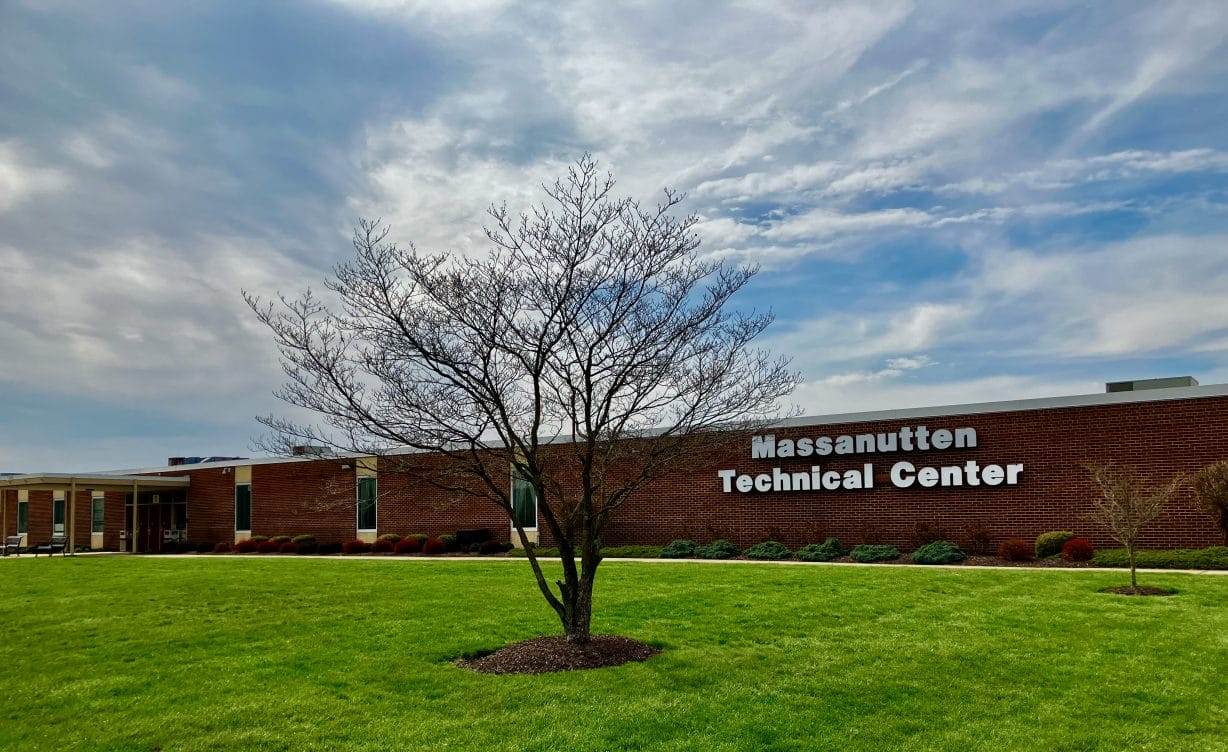
By Calvin Pynn, contributor
The future of career and technical education in Harrisonburg City Public Schools will not be confined to a brick and mortar model, but rather a hybrid system focused on community partnerships, according to school leaders.
Superintendent Michael Richards on Thursday described the plan for the city schools’ vocational programs as the school division charts a new path forward after the city school board voted earlier this month to exit a partnership with the Rockingham County School Board over shared governance of Massanutten Technical Center. That vote followed months of arguments between the two boards, and while the conclusion of a nearly six decade partnership marked the end of one era, Richards says he saw an opportunity to begin another.
“The idea of a self-contained, brick and mortar CTE program, is sort of a thing of the past,” Richards said. “We’re much more aligned to partnerships and alliances and getting kids into those spaces where they may be working some day as opposed to being inside of a classroom.”
Richards and Jeremy Aldrich, the district’s director of career and technical education, met with reporters Thursday afternoon following the first meeting of a committee formed to explore the future of career and technical education in Harrisonburg. It includes administrators from JMU and Blue Ridge Community College, CTE teachers in the city’s schools, leaders from organizations such as CodeVA, Endless Horizons and Sentara-RMH; and current school board members Andy Kohen and Kaylene Siegle alongside former member Deb Fitzgerald.
With a variety of organizations represented in the committee, the discussion focused on high-growth career fields and potential trades of interests of students going into the future workforce.
Careers in green technology (such as geothermal energy, solar technology and environmental science), cybersecurity and artificial intelligence were among those identified, alongside current offerings at MTC such as auto-tech, culinary arts and cosmetology were identified as high-demand fields.
Richards emphasized the need for exposure with on-the-job learning and career readiness — not only in the trades, but also in higher education.
“One of the things I think is really valuable is this idea that many of our students in Harrisonburg are not exposed to a lot of these kinds of challenging, later-in-life things that we might want to expose them to,” Richards said. “And one of those things is, of course, college.”
Aldrich said the school division intends to offer a curriculum that will allow students to work in careers that take them beyond Harrisonburg.
“Many of our students will continue to live here after they graduate, but many will not,” Aldrich said. “And we want them to be ready for what life brings them beyond high school.”
He added that the committee intends to design programs with long-term career progression and credentialing in mind. That could include pathways for HCPS students to earn certifications and course credits towards an associates degree.
“What we want to do is make sure whatever we do is stackable, and that even if you don’t finish it while you’re in high school, that you’ve punched your ticket along the way towards that associates degree, career studies certificate, or whatever it would be,” Aldrich said.
Richards also said he wants students to connect technical skills with a broader impact on the world, with a particular interest in green technology. He referenced how that technology’s use in Harrisonburg’s schools could also provide a learning opportunity for students.
“Our solar panels on the roof of [the HCPS offices] are helping the world,” Richards said. “And so, I want technicians — I want students — to get a certification to put solar up there, but I also want them to see the big picture in it.”
The committee will take a more hands-off approach with regard to determining the city schools’ future CTE courses, Richards said. Instead, the school division will focus next on gathering information by surveying students in the near future.
Funds for a future career and technical education program also appear to be in the school division’s budget, Richards said. The planned exit from the Massanutten Technical Center partnership frees up $1.8 million that HCPS typically would contribute to the jointly operated technical school, along with a potential $5 million that would have been earmarked to contribute to the MTC building’s renovations.
A new career and technical education program in the city’s schools would begin after the conclusion of the 2026-2027 school year, when HCPS will officially withdraw from the MTC partnership. That timeframe will allow current juniors and seniors with Harrisonburg High School and Rocktown High School enrolled in MTC to complete their programs.
Thanks for reading The Citizen, which won the Virginia Press Association’s 2022 News Sweepstakes award as the top online news site in Virginia. We’re independent. We’re local. We pay our contributors, and the money you give goes directly to the reporting. No overhead. No printing costs. Just facts, stories and context. We value your support.














